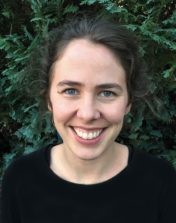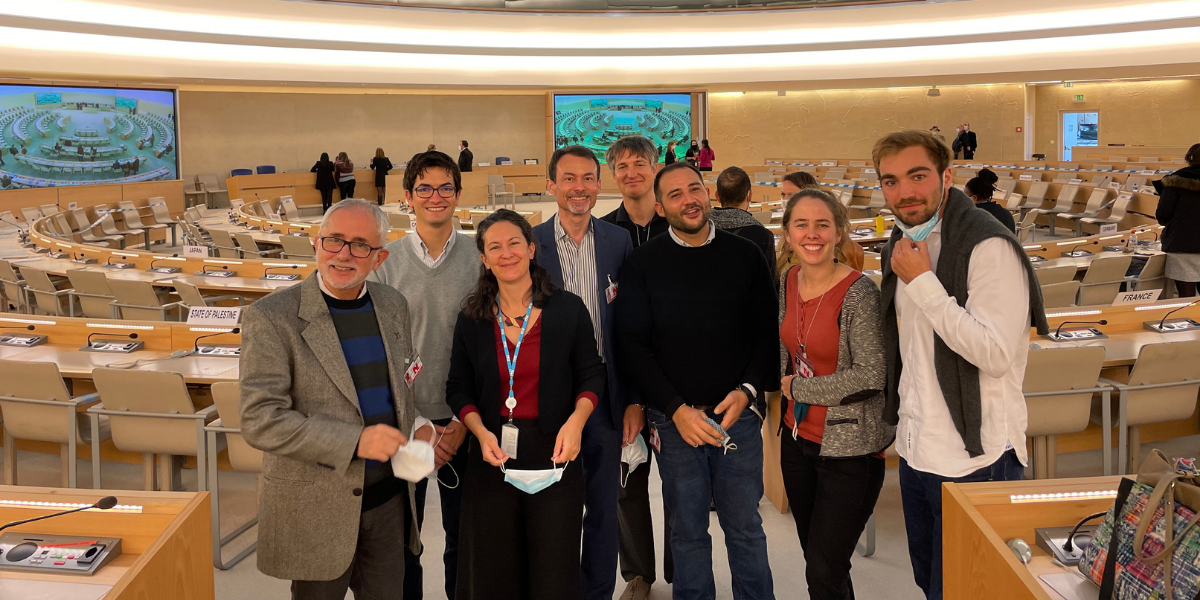Elise started her career in research in development economics, working at the University of Saint-Louis in Belgium. In 2017, she began working on humanitarian and migration issues at Oxfam International EU office, then at Caritas International Belgium on migration and development. Elise took on the position of Senior Policy and Advocacy Advisor at CIDSE in February 2021. She is now leading a team within CIDSE focusing on land rights, corporate regulation and alternative to extractives, and Israel and the Occupied Palestinian Territory. The work of this team builds upon efforts to address linkages in these work areas, including the impacts of large‐scale corporate activities and concerns regarding human rights defenders.
In this interview, she reflects on her work experiences in the advocacy field.
How did you become involved in advocacy work?
Initially, I started doing research. I began a PhD in development economics in Brussels but changed rapidly towards the NGOs world. I felt it would have a more direct impact on social injustice. To me, advocacy seemed like the only option to do that.
How would you say that your work has evolved throughout the years?
I experienced quite some evolvement in terms of topics of my advocacy work. I started working on issues related to migration, development and humanitarian issues. Now, the focus is more on human rights and corporate accountability.
I also got more familiar with advocacy techniques over time. You learn about it by doing. With time you acquire skills in being more proactive – which is essential as this work is really about timing. As there are a lot of ups and downs regarding workload, you always need to be ready for a busy moment.
How did you get to your position at CIDSE?
I used to work at Caritas Belgium for three years before I got the position at CIDSE and for Justice and Peace Belgium before that. This position felt right to me as I had touched upon the topics of my current team on different occasions. During my studies, I worked on trade issues, mining, corporate power, and food security. While my first master’s thesis focused on the traditional mining sector in Burkina Faso, my PhD on the impact of Foreign Direct Investments on the informal economy in Sub-Saharan Africa. And about Israel and Palestine, I worked on the topic while working at Oxfam International EU Office.
How does your background in migration relate to the areas you are focusing on now?
If you follow a systemic change analysis, you understand that everything is interconnected. At Caritas International Belgium, we believed that people had the ‘right to leave’, as well as the ‘right to stay’. Migration is a coping mechanism for some people to particular circumstances: insecurity, inequality, etc. And I felt that I wanted to tackle those circumstances. For me, corporate abuse has a big role as a source of global injustice. Hence, I wanted to join CIDSE.
Would you say that you still use economic knowledge in your work today?
I think it depends on the topic. I would say that my economic background does help me to understand the geopolitical context of global injustice. Corporate power or agro-businesses issues are, in the end, all linked to economic interests. I also did another Master in International Political Economy in London – it also helped feed my understanding of a systemic approach.
Have you experienced any difficulties or challenges in the advocacy field?
Challenges, yes. For instance, civil society participation is not always granted – see for the EU-AU Summit, for example. Sometimes, the challenge lies in keeping the topic a priority – see for example, the political fatigue around the situation in the Occupied Palestinian Territory. COVID is also a challenge – especially for brainstorming moments. It’s harder to dream in front of a computer.
What are you the proudest of at CIDSE?
I’m most proud that CIDSE aims at being a progressive organization. I feel the organization, and the members, want to challenge themselves when it comes to decolonization for example. Because it is not always about what you achieve, but also about how you achieve it. I’m also proud – and lucky – of being part of such a hard-working and welcoming team.

Senior Advisor at CIDSE

